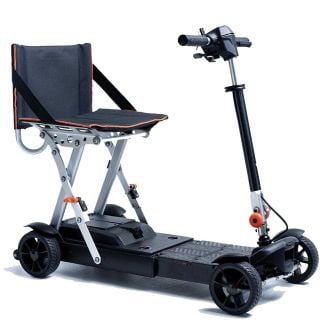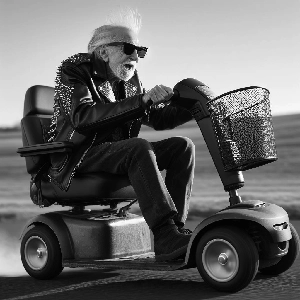Having surgery means that you will have to take some time to recover after the procedure.
The post-surgery period depends on many factors, the most important of which are the patient’s health condition and the seriousness of the operation.
In case your surgery has already been scheduled, or if you have just had surgery and are still in a hospital wondering about the post-surgery period, we are here help with some challenges you may encounter and give you some tips on speeding up the recovery.
Table of Contents
Don’t Be Afraid of Surgery

Having surgery can feel overwhelming. Its important to know that you’re, in the hands of skilled professionals who perform these procedures regularly and with great care. Surgery to different areas of the body will dictate the type of recovery and the time of recovery.
Hysterectomy recovery is a lot more involved and takes longer than say, knee replacement recovery.
Your surgical team, which includes the surgeon, anesthesiologist and nursing staff is dedicated to ensuring your safety and comfort throughout the process.
Advancements in techniques and anesthesia have made procedures safer and recovery times shorter.
Every effort is made to reduce risks and enhance your chances of an outcome. It’s normal to be anxious. Focusing on the aspects of your surgery such as the relief or improvement, in health it will bring can help.
Your healthcare team is there to guide you at every stage and is committed to providing top notch care for your smooth recovery.
Here’s what is likely to happen and what to expect when you when you arrive at the hospital
- Check-In
Arrive at the hospital on time as scheduled.
Registration: Check in at the desk show your ID and fill out forms.
Insurance Confirmation: Provide your insurance details for verification. - Pre Surgery Evaluation
Check up: A nurse will check your signs (blood pressure, temperature, pulse and breathing rate).
Medical Background Review: Your medical history, allergies and current medications will be reviewed.
Consent Paperwork: Sign the consent forms for the surgery and anesthesia.
Pre Surgery Tests: If not already done you may need to undergo tests like blood work, an EKG or X rays. - Getting Ready
Wear Surgical Attire: Change into a hospital gown before the procedure.
Remove Personal Belongings: Take off jewelry contact lenses, dentures and any other personal items.
IV Insertion: A nurse will put in an IV line to give you fluids and medications. - Meeting the Surgical Team
Anesthesia Discussion: Talk to the anesthesiologist about your anesthesia plan. Any concerns you may have.
Surgeon Consultation: Have a chat, with the surgeon regarding the procedure. Address any last minute queries. - Meeting the Nursing Team
You will then meet the nursing team who will be there to help you during your surgical journey and these are the people you will see most of as they will be caring for you and monitoring your condition. - Pre Operation
You might be given a sedative to help you relax before the procedure. If necessary you will also receive antibiotics to prevent any infections. - Into the Theater.
You will then be moved from the operative area to a gurney and wheeled into the operating room by the surgical nursing team. Once in the operating room, you’ll be positioned on the operating table. You’ll receive anesthesia from the anesthesiologist putting you to sleep so you will feel nothing. Monitoring equipment will be used to keep track of your signs throughout the procedure. - Post Theater
When you will wake up you will feel a bit groggy and intoxicated, but the anesthesia will weaken within a couple of minutes,
Surgical patients are usually kept in the hospital for a few days after the surgery, patients with relatively minor surgeries may be allowed to go home the same day,
Depending on what and where the surgical procedure is some patients may be given narcotic painkillers.
Tips On the Post-Surgery Period

Some patients after having surgery, will be impatient and will want to get back to doing the normal things in life like work, sports and hobbies.
You may initially have thought that it would be best to lie in bed and let yourself heal naturally. However, once you start feeling a bit better, you will instinctively want to get up and return to normal life and activities.
Life is waiting for you, but you should still take care of yourself, as your surgical wound is fresh and will take a while to heal properly so your condition presents some challenges.
Still, you should take some precautionary measures before returning to your routine activities.
The best way to do so is to follow up on some tips to help your body recover and heal faster.

Post Surgery Care Plan
1. Doctor’s instructions
After surgery, you need to follow the post-op care plan, which may include medications to help with pain and infection control, a surgical wound care plan, and activity restrictions.
2. Pain Management
Pain management is very important for surgical recovery, so make sure that you follow the medication dosage instructions carefully.
Sometimes, a sore throat can occur because of the breathing tube used during surgery. It usually gets better within a few days.
3. Stay Hydrated and Eat!
Some people will lose their appetite after surgery however, the post-surgery process requires a patient to stay hydrated and eat healthy food, as this will help with healing and prevent side effects of anesthesia.
Food is like fuel for your body, and your body needs some additional support in the post-surgery process.
4. Watch for complications and signs of infection
Signs of excessive swelling, pain or discomfort, redness or fever should immediately reported to the nurse or your Doctor as the earlier these are seen to the less likely the chances of being readmitted into the Hospital
5. Rest and Sleep
Plenty of horizontal rest and sound sleep will help with the healing and recovery process. If you can, elevate the area where the surgery was performed to help reduce swelling
6. Follow up Appointments
Attend all follow-up appointments. The medical team needs to know if you are experiencing any unexpected symptoms so they can treat you quickly.
5 side effects from General Anaesthetic
1. Drowsiness and Confusion
It’s normal to feel drowsy and disoriented immediately after waking up from general anesthesia. This can last for several hours.
2. Nausea and Vomiting
Nausea and vomiting can be common side effects of a general anesthetic. Medications can be provided to help manage these symptoms.
3. Sore Throat
A sore throat may occur due to the breathing tube used during surgery. This typically resolves within a few days.
4. Cognitive Effects
Some patients may experience short-term symptoms like memory lapses or finding it difficult to concentrate. These usually improve within a few days.
5. Delayed Motor Skills
Coordination and motor skills, such as low hand-eye coordination and high levels of dizziness might be present for a while after surgery. It would be best not to drive, ride bikes or operate heavy machinery until fully recovered.
Sources
- Mayo Clinic Staff. (2021). “Post-Surgery Care: What to Expect”. Mayo Clinic. Retrieved from Mayo Clinic
- National Health Service (NHS). (2022). “Recovering After Surgery”. NHS UK. Retrieved from NHS
- American Society of Anesthesiologists (ASA). (2020). “What to Expect After Surgery and Anesthesia”. ASA. Retrieved from ASA
- Johns Hopkins Medicine. (2023). “Preparing for Surgery: The Day Before and Day of Surgery”. Retrieved from Johns Hopkins MedicineCleveland Clinic. (2021). “Day of Surgery: What to Expect”. Retrieved from Cleveland ClinicAmerican College of Surgeons. (2022). “Before Surgery”. Retrieved from American College of Surgeons






